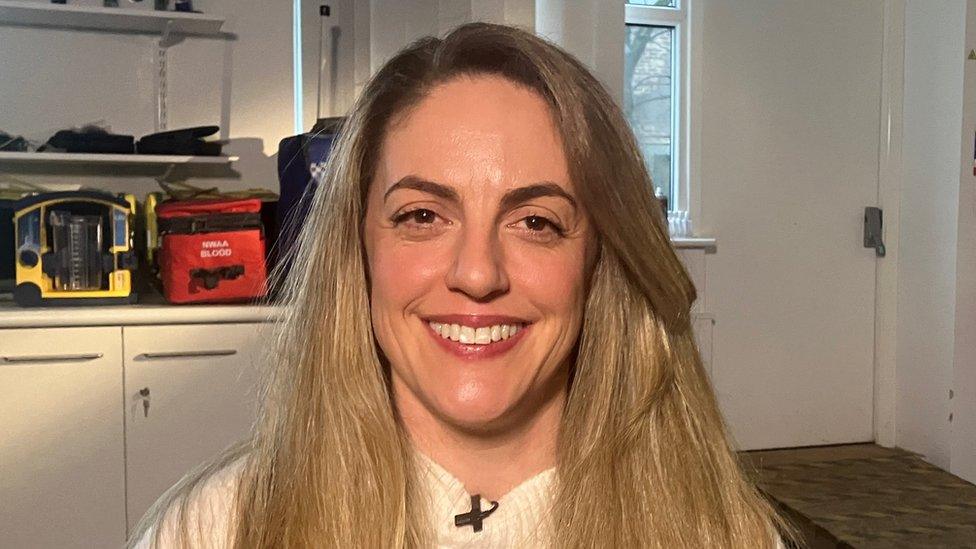Air ambulance upgrades 'helping save more lives'
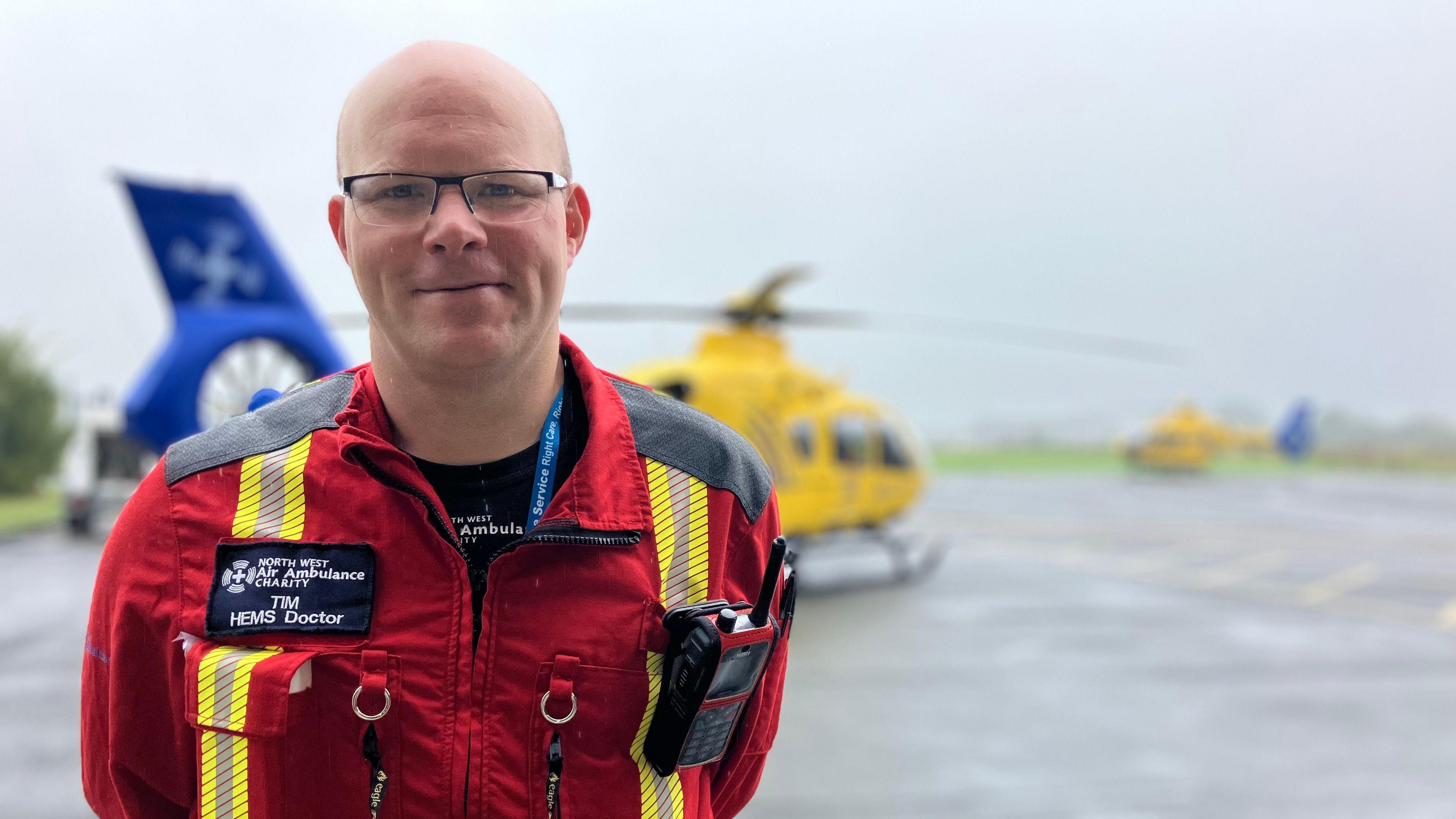
Dr Tim Smith says improved medical capability on air ambulances mean more critically-ill patients are surviving
- Published
Improvements to air ambulance helicopters and hospital-level treatment onboard is helping to save more lives, according to a charity.
North West Air Ambulance carries out thousands of missions every year, with doctor-led teams providing advanced trauma care at the scene of an emergency.
Recent upgrades to the charity’s three aircraft have given medical crews extra flying time.
Emergency consultant, Doctor Tim Smith, said: “It’s about bringing the medical interventions that can make a difference between life and death."
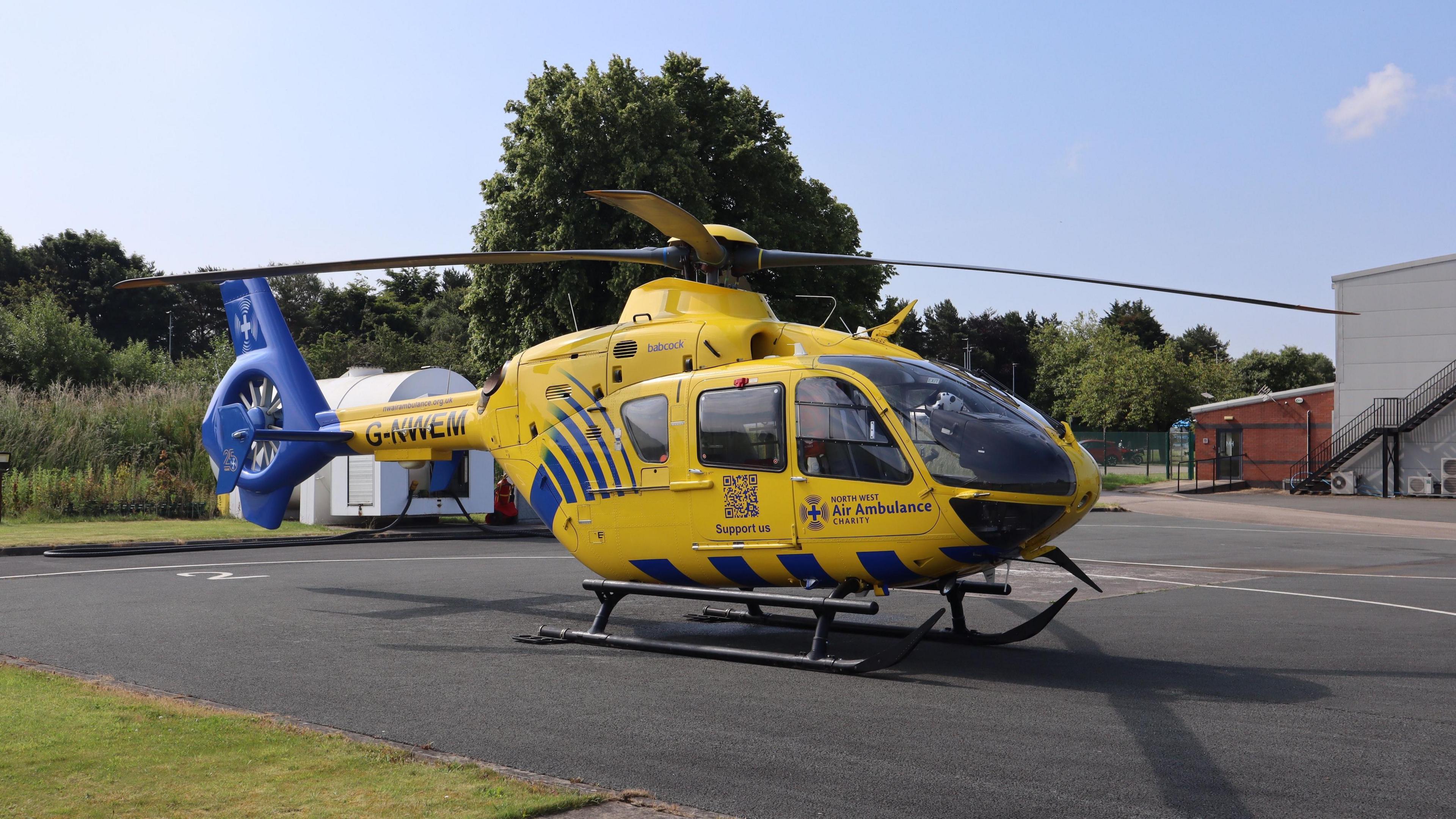
Air Ambulance crews carried out more than 3000 missions across the North West in 2023, their busiest year to date
Dr Smith said it was "undoubtedly true" that improved medical capability on air ambulances meant more critically ill patients were now surviving their injuries.
“We provide a whole host of clinical interventions that up until fairly recently were only available in a hospital," he said.
The specialist crews are now able to offer blood transfusions at the scene of an incident, along with general anaesthetics, hospital-level pain relief and enhanced monitoring of patients.
Mike Bray, 53 from Boothstown in Salford, said air ambulance medics saved his life after he had a heart attack.
Although a friend gave him CPR, his heart stopped beating for 12 minutes before an air ambulance crew and other paramedics arrived.
“It turned out it was my left-interior descending artery that was blocked,” he said.
“That’s also known as the widow-maker. I basically should’ve died.”
Mr Bray added: “I didn’t know they were a charity until after the event but the fact that they fly around and save people’s lives and just go off into the sunset, it’s remarkable.”
Martin Booth, a critical care paramedic who works from the charity’s base at Barton Aerodrome in Salford, said: “It’s the best job in para-medicine."
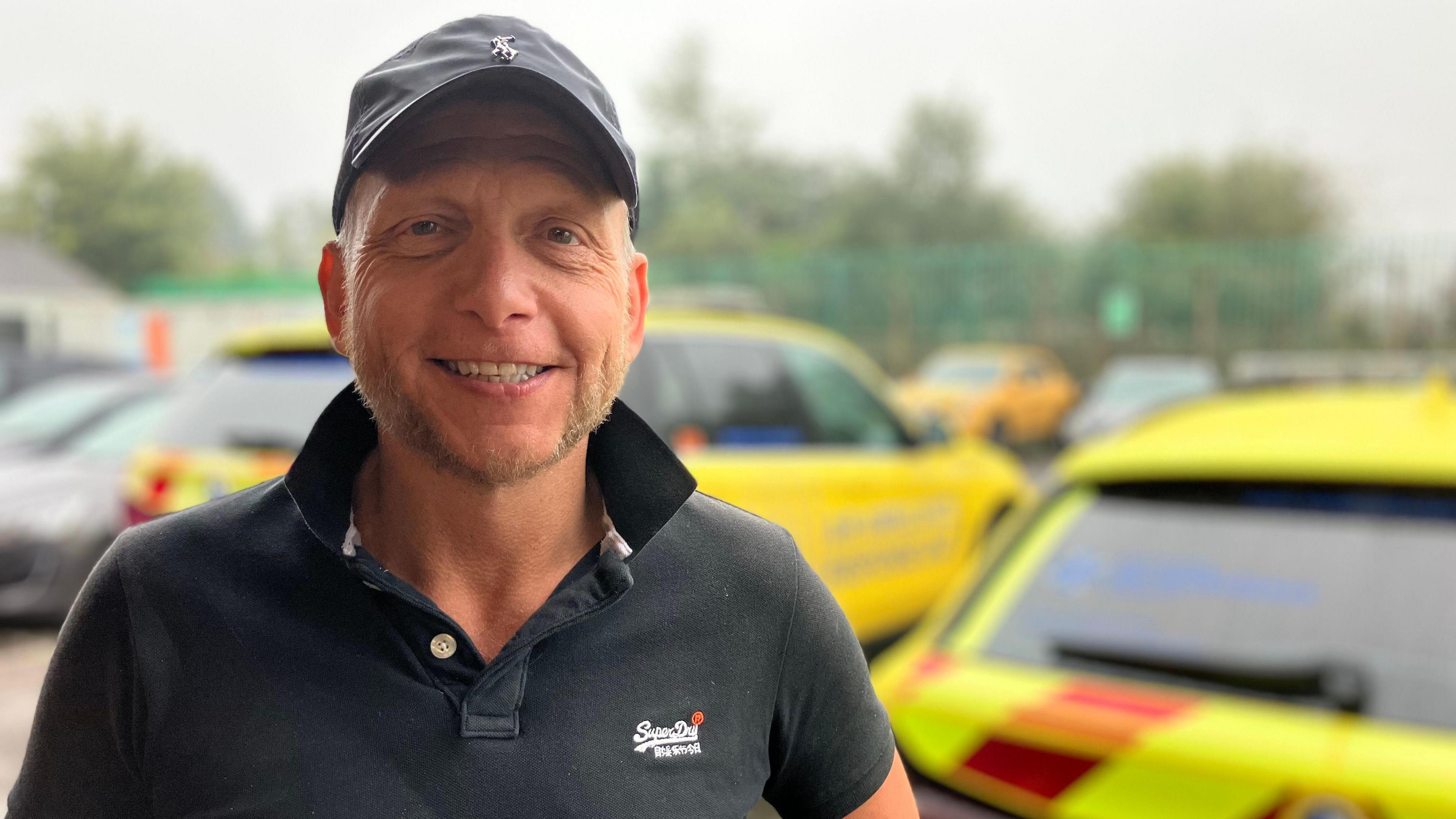
Mike Bray says an air ambulance crew saved his life after a heart attack
After more than a decade in the team, Mr Booth believes bringing doctor-led medical care to patients at the roadside has been "a real step change".
“We’re now providing really enhanced critical care to the most severely injured and unwell people… giving them the best chance of survival.”
Air Ambulance crews carried out more than 3,000 missions across the North West in 2023, their busiest year to date.
Engine improvements to the charity’s three helicopters have given crews an additional 30 minutes of flying time before needing to return to base to refuel.
The charity has also recently renovated the interior of its aircraft, including introducing new stretchers and oxygen systems.
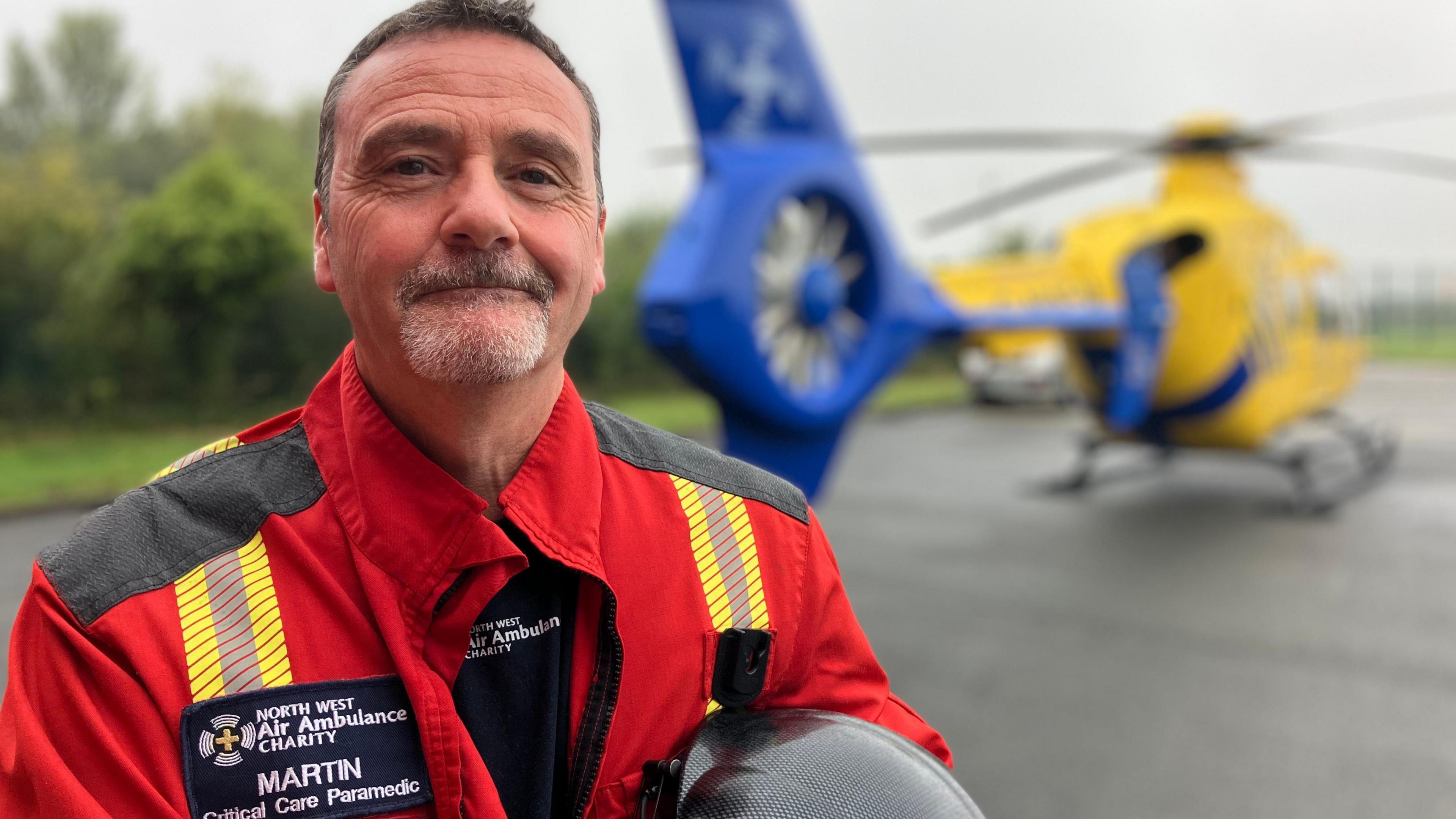
Martin Booth says the changes to the air ambulances and the doctor-led teams give patients "the best chance of survival"
Pilot James Holland said: “All these marginal gains make it quicker and safer to get the patient to the hospital.
“It’s amazing being part of this team.”
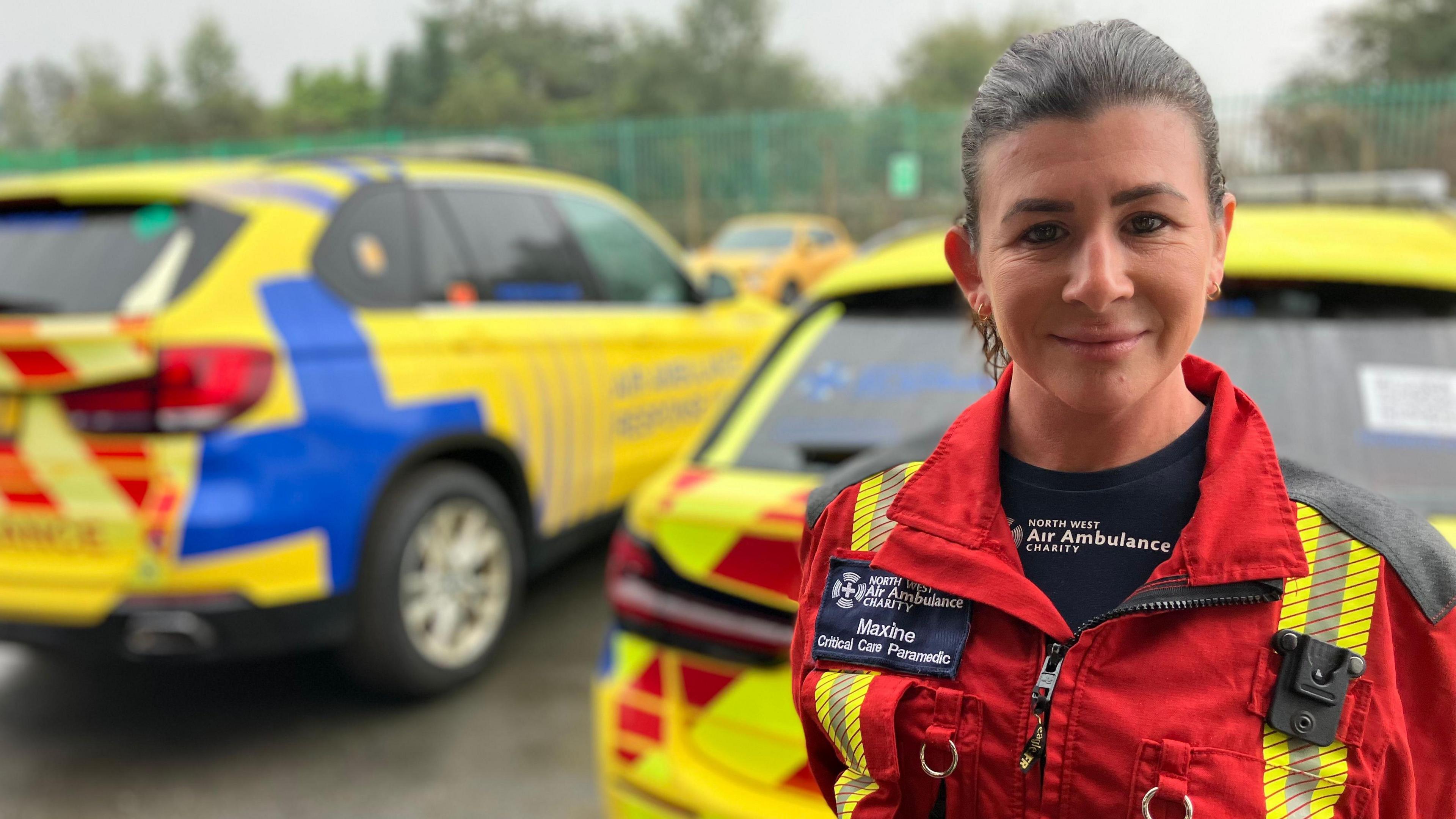
Maxine Sharples has been on the team for 18 months as a critical care paramedic
Critical care paramedic Maxine Sharples, who joined the North West Air Ambulance 18 months ago, agreed it was a "brilliant" team to work in.
“We strive to be excellent in trauma care and that’s what we provide.”
She said the crews appreciated how critical their role could be in saving lives and preventing serious injury.
“If you’ve got a really sick child... I want them to be in hospital as soon as possible, getting the specialist care they need,” she said.
The charity, which is celebrating its 25th anniversary in 2024 receives no regular government or NHS funding and has to raise more than £12m a year to stay operational.
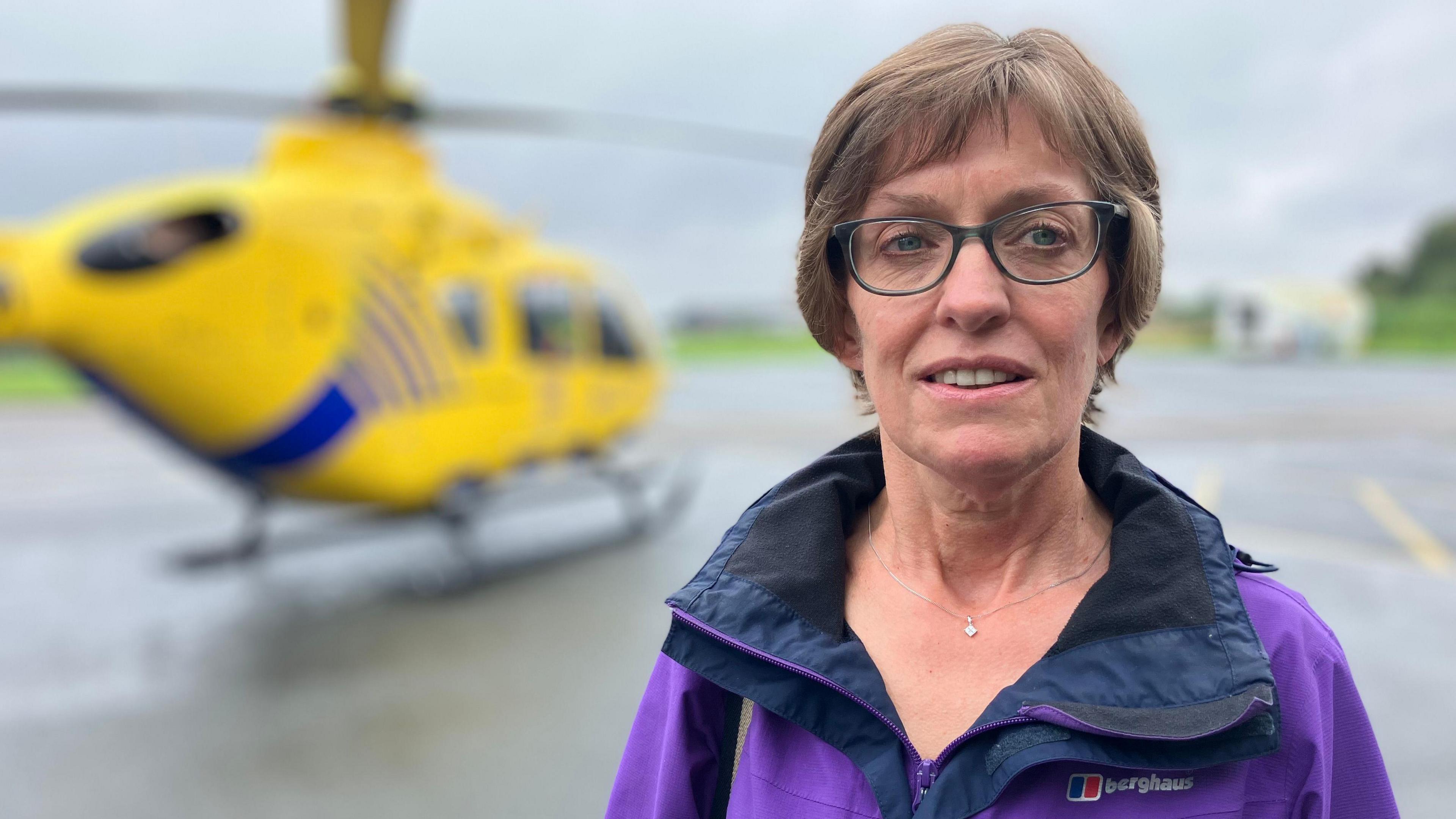
Rachel Hilton says the air ambulance crew prevented her "disability and death"
Retired GP, Rachel Hilton from Horwich, suffered serious head and chest injuries after being thrown off a horse in 2007.
The speed of the air ambulance meant crews were airlifting her to a specialist hospital as paramedics in road ambulances arrived at the scene.
The 60-year-old believes the rapid response of the air ambulance crew helped her survive and avoid long-lasting damage.
“I credit them with having prevented disability and death. The fact I‘m here now is all because of the speed and the care I got on that day.”
Listen to the best of BBC Radio Manchester on Sounds and follow BBC Manchester on Facebook, external, X, external, and Instagram, external. You can also send story ideas to northwest.newsonline@bbc.co.uk, external
Related topics
- Published9 February 2024
